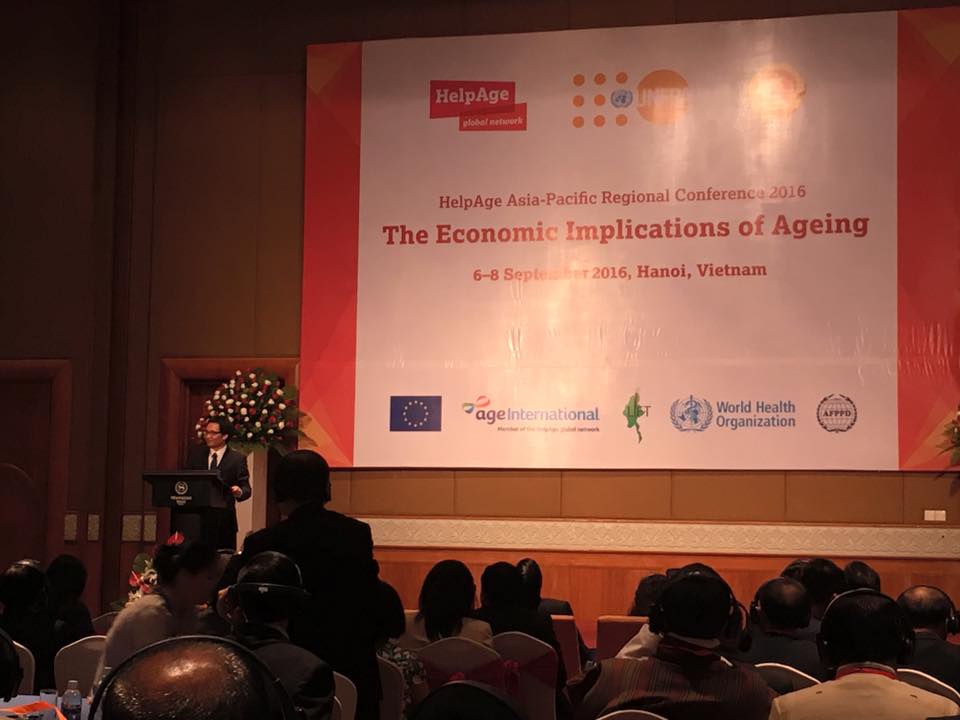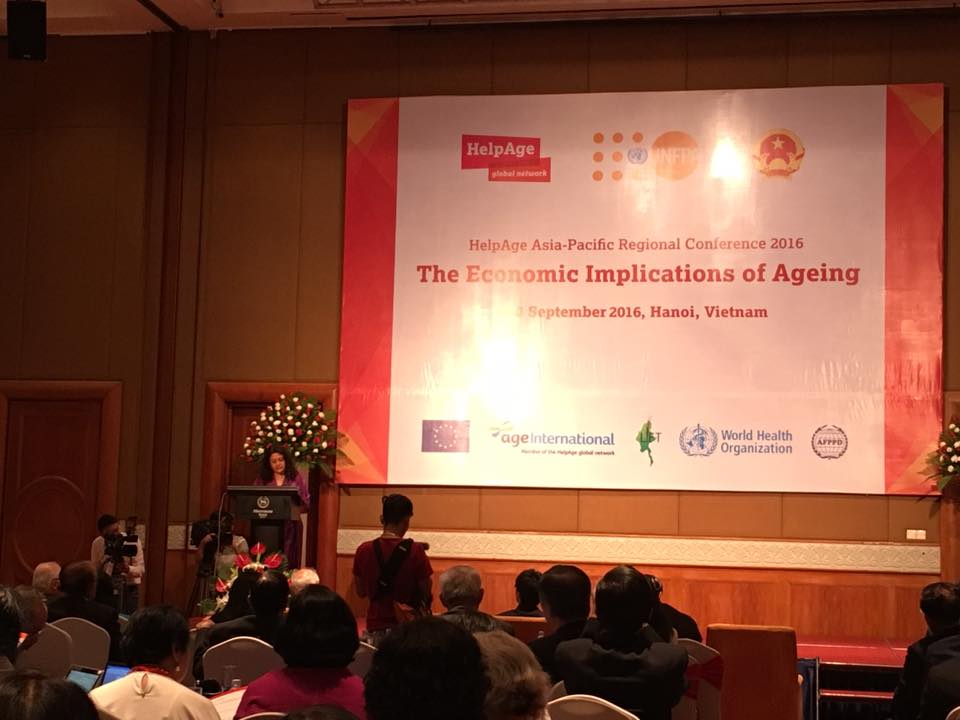Conference on economic implications of ageing
(VNF) - The 2016 HelpAge Asia–Pacific Regional Conference on the economic implications of ageing took place in Hanoi from September 6th- 8th, was held by the Ministry of Labour, Invalids and Social Affairs (MOLISA) of Vietnam and United Nations Population Fund (UNFPA), and HelpAge International.
The Asia-Pacific region will be particularly affected by the rapid and sustained increase in older people as a proportion of its population. Ageing workforces, macro-economic performance, fiscal sustainability and income inequality all weigh heavily on the future of countries across the region and their governments.
Understanding and strategically preparing for these shifting demographics and their significant socio-economic implications is a top priority for governments across the region than ever.
With 300 representatives from government agencies, UN agencies and development banks, members of civil society and the private sector, this year’s conference aims to raise awareness of the economic adaptations needed to respond to rapid population ageing in low and middle income countries of Asia-Pacific.
 |
Deputy PM Vu Duc Dam points out challenges posed by the rapid ageing of Vietnam’s population at the opening of the conference on September 6th. (Credit: Facebook/HelpAgeAsia)
Addressing the opening ceremony, Deputy Prime Minister Vu Duc Dam, who is the President of the National Committee for Vietnamese Elderly People, said Vietnam was at the pinnacle of a golden population and moving towards the threshold of becoming a country with an elderly population. It’s estimated that the number of young and old people will be the same in 20 years.
If in 2010, there was one elderly Vietnamese to eleven Vietnamese, then by 2030 it is expected that there will be only six Vietnamese adults to each elderly person. In the next 50 years, the figure is forecast to increase to one elderly per four Vietnamese. If there is no change in Vietnam’s population control policies, in the next twenty years young and elderly people of Vietnam will be equal in proportion—a concern raised by Deputy PM Dam.
“We understand that although it is not a new matter, it poses numerous challenges to Vietnam. Vietnam needs not only to overcome these challenges, but turn them into opportunities for development. We need to promote the role of the elderly,” he said.
He also said that in addition to caring for the elderly’s health, it was necessary to promote their role by finding ways to help elderly people maximize their capacity for labour, while promoting self-management of the elderly in social management.
By 2050, there will be 1.2 billion people aged over 60 living in East Asia and the Pacific, equivalent to two-thirds of the world’s older men and women. This has significant economic implications for countries that will face a proportionally smaller working-age population and a growing number of older dependents.
 |
"More than ever we need to work more closely together to address a rapidly shifting demographic landscape and to harness opportunities,” UNFPA Asia and the Pacific Regional Office Deputy Director Lubna Baqi. (Credit: Facebook/HelpAgeAsia)
“East Asia and the Pacific’s demographic changes have deep social and economic implications across the region. Policies that prepare for this demographic transformation are urgently needed to maintain economic growth and wellbeing of everyone,” said Eduardo Klien, East Asia/Pacific Regional Director, HelpAge International.
“Ageing populations are commonly viewed as a threat, even a potential catastrophe, by many governments and economists, but that doesn’t necessarily have to be a self-fulfilling prophecy,” noted Yoriko Yasukawa, Asia-Pacific Regional Director of the United Nations Population Fund, UNFPA.
“Making changes to economic and health policies as well as mindsets can help countries achieve an optimal future by minimizing the burdens and maximizing the contributions of older persons. Ultimately, this issue must be viewed and addressed within the context of the 2030 Sustainable Development Agenda whose central pledge is to truly leave no one behind”.
The global population is also aging rapidly, which is challenging the governments of countries in the development and application of public policies to support people at all ages including the elderly./.
Minh Phuong
Recommended
 Handbook
Handbook
Vietnam Moves Up 8 Places In World Happiness Index
 Handbook
Handbook
Travelling Vietnam Through French Artist's Children Book
 Multimedia
Multimedia
Vietnamese Turmeric Fish among Best Asian Dishes: TasteAtlas
 Handbook
Handbook
From Lost to Found: German Tourist Thanks Vietnamese Police for Returning His Bag
 Handbook
Handbook
Prediction and Resolution for the Disasters of Humanity
 Handbook
Handbook
16 French Films To Be Shown For Free During Tet Holiday In Vietnam
 Handbook
Handbook
Unique Cultural and Religious Activities to Welcome Year of the Snake
 Handbook
Handbook
